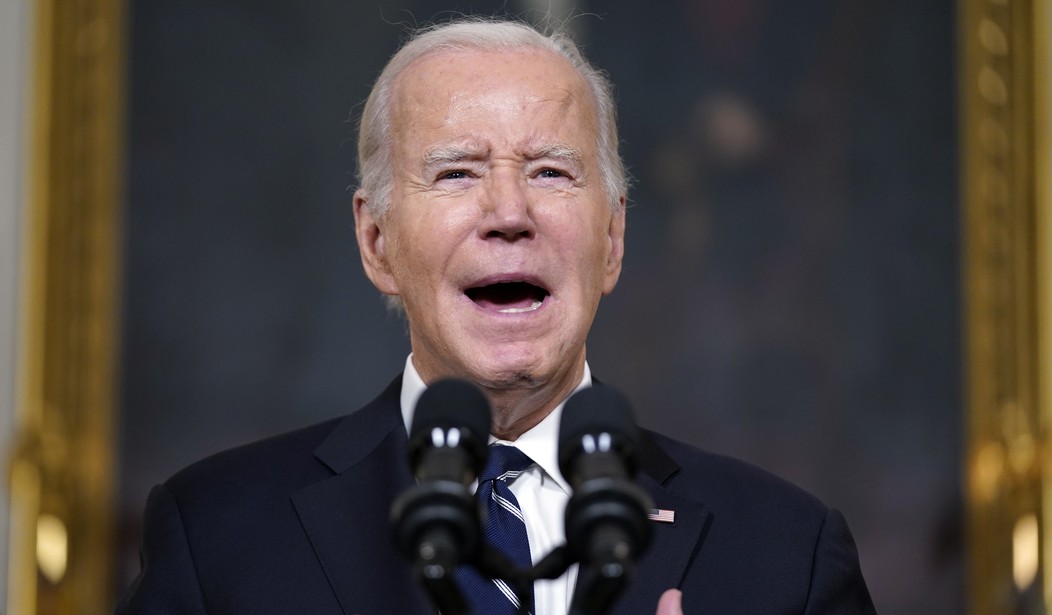Top News
New Hampshire: Too Bad, Biden. We’ll Pick Our Own Primary Date

The gauntlet has been thrown down in the Granite State in terms of the 2024 primary calendar and there will no doubt be a lot of tension as a result. The DNC and Joe Biden had both issued “orders” for a new primary calendar designed to give Biden a presumed advantage by allowing South Carolina to go first next year. But New Hampshire announced today that their primary will take place on January 23rd. This battle once again highlights the differences between party rules and actual laws, and Democrats will have a hard time defending their policies in this case. New Hampshire will now face penalties from the DNC, but the people in charge of this decision in New Hampshire have the law on their side. (NBC News)
New Hampshire on Wednesday announced Jan. 23 as the date of its presidential primary, setting up the second GOP contest of 2024 eight days after the Iowa caucuses — and defying President Joe Biden and the Democratic National Committee’s plans to give South Carolina the party’s first primary contest.
The move means the Granite State will remain first on the primary calendar, but it faces punishment from the DNC, including the loss of half of its delegates to the Democratic convention, for not following the party’s new order, which was recommended by Biden.
The conflict between New Hampshire and national Democrats means Biden’s name will be missing from the New Hampshire presidential primary ballot this year.
The DNC and the RNC set the rules for their own primaries, so one might assume that the states would follow their decisions. But that’s just party politics, not actual election law. New Hampshire has had a law on the books for almost fifty years requiring their primary to take place at least seven days prior to any other state. So New Hampshire is following the law while the DNC is trying to insist they follow “the rules.” The distinction is important. But New Hampshire may lose half of their delegates at the convention as a result, watering down the eventual winner’s advantage.
In terms of who goes first, I don’t really have a horse in this race. I’ve wanted to see the order changed for a long time and have written about this on multiple occasions over the years. Personally, I’ve favored proposals where there would be a rotating set of states, including large and small, that would cycle through the first slot every four years. But then, I’m not a member of either major party so I don’t get to vote in their primaries anyway. (For those who might be curious for some reason, I’m a member of the Conservative Party of New York State. We act as a counterbalance to the RINOs that mostly run the New York GOP.)
This dogfight over New Hampshire may have an unanticipated impact on the election season, however. What this announcement means is that Joe Biden’s name will not even appear on the first Democratic primary ballot for 2024, so unless he gets a massive number of write-in votes, somebody else will pull out for an early lead. And there will definitely be other names on the ballot.
In a wide-open primary season, that often makes a difference. The winner of the first couple of primaries has traditionally drawn a lot of earned media and seen a surge in their polling numbers. (Bernie Sanders could tell you a few things about that, even though his own party managed to sink him in the end.) In this case, it may not be as much of a factor. Joe Biden, as the incumbent, is the de facto nominee and the rest of the people seeking to replace him on the ticket still have a huge mountain to climb if he won’t step down voluntarily.
But the Democrats at the national convention are, as we’ve discussed here before, under no obligation to honor the results of the primary. If they see Biden as too big of an albatross around their collective necks, they can use their superdelegates to boot both him and Kamala Harris off the ticket and replace them with someone else. Things could become very, very interesting at that point. Break out the popcorn and stay tuned.
Read the full article here


















